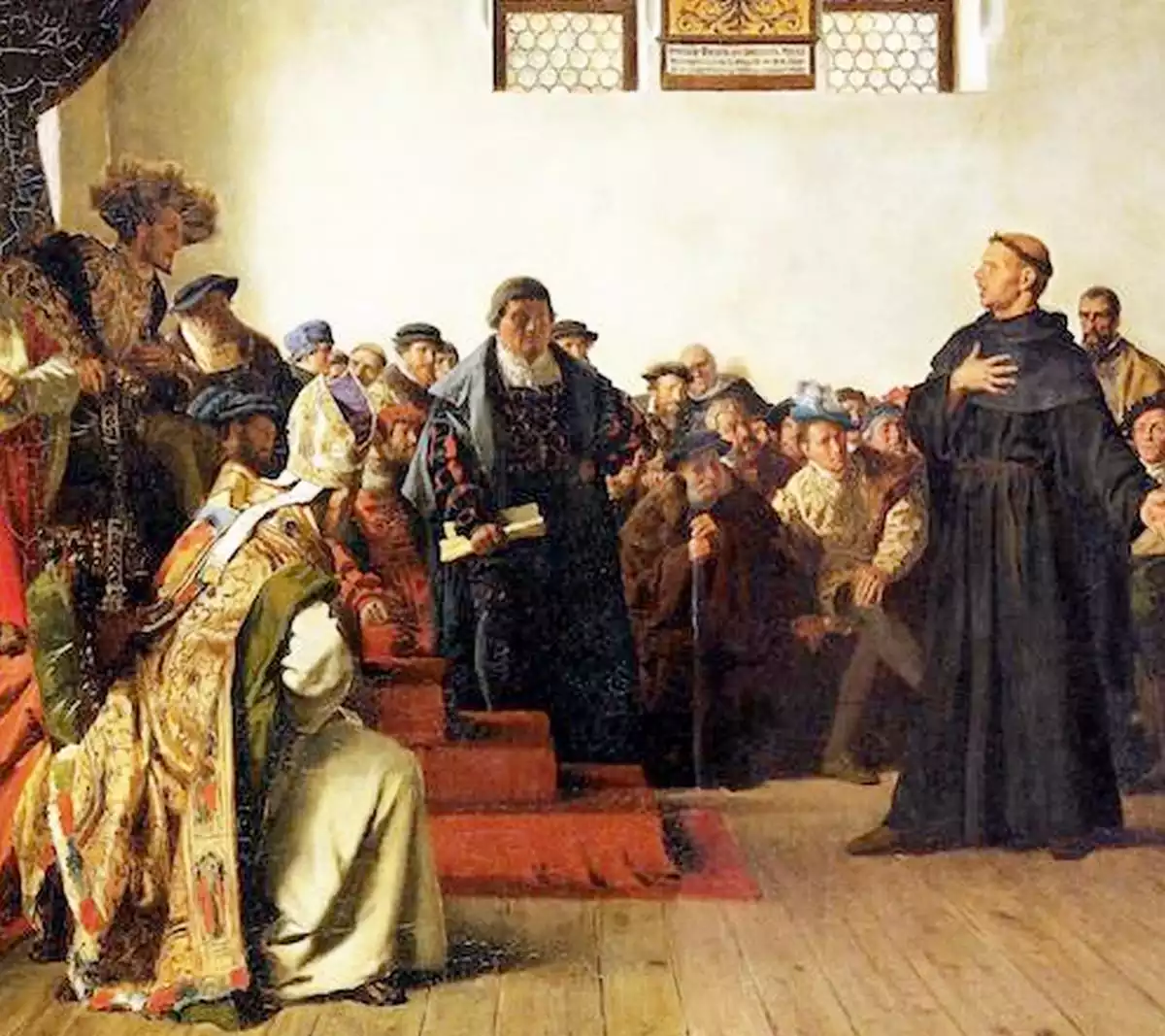
Seeds of Doubt Sown
The year 1521 marked a pivotal moment in European history. It was the year Martin Luther, a German monk and theologian, ignited a religious firestorm that would irrevocably alter the landscape of Christianity. On January 3rd, Pope Leo X issued the papal bull Decet Romanum Pontificem, formally excommunicating Luther from the Catholic Church. This dramatic act culminated from years of simmering tensions, fueled by Luther’s scathing critiques of the Church’s practices and doctrines.
Luther’s journey toward excommunication began in 1517 with the Ninety-Five Theses, a document questioning the sale of indulgences, a practice he deemed corrupt and exploitative. His bold questioning of papal authority resonated with many across Europe, sparking fervent debate and challenging the established power structures of the Church. Despite attempts to silence him, Luther’s ideas spread like wildfire, fueled by the burgeoning printing press.
The Church, initially hesitant to take drastic measures, eventually sought to quell the dissent. In 1520, Pope Leo X issued the papal bull Exsurge Domine, demanding Luther recant 41 of his theses. Luther’s unwavering refusal set the stage for the inevitable confrontation. The following year, he was summoned before the Diet of Worms, a gathering of Holy Roman Emperor Charles V and prominent German officials. There, Luther was given the opportunity to retract his criticisms. However, standing firm in his convictions, he famously declared, “Here I stand. I can do no other.”
This defiant act marked the point of no return. Not only did it solidify Luther’s break with the Church, but it also galvanized his supporters and emboldened them to challenge the religious status quo. The seeds of doubt, sown by Luther’s critiques, had now blossomed into a burgeoning movement: the Protestant Reformation.
Excommunication and Its Aftermath
The reverberations of Luther’s excommunication were immediate and far-reaching. Across Europe, support for Luther solidified, dividing communities and igniting political conflict. In Germany, Luther’s home turf, his excommunication fueled the existing tensions between Emperor Charles V and the rebellious princes who embraced Luther’s ideas. This religious rift laid the groundwork for the tumultuous Schmalkaldic Wars, a series of conflicts that plagued the region for decades.
Beyond Germany, Luther’s message resonated with people from all walks of life, from scholars and clergy to artisans and peasants. His condemnation by the Church only amplified his appeal, casting him as a champion of the common man against the perceived corruption of the powerful. This sentiment fueled the rise of numerous independent Protestant denominations, each with their own interpretations of Scripture and challenging the Church’s monopoly on religious authority.
The political landscape transformed as well. Rulers throughout Europe grappled with the religious upheaval, wielding it as a tool for their own ambitions. Some, like Henry VIII of England, capitalized on the unrest to break from papal control and establish their own Church. Others, like Francis I of France, played a delicate game, oscillating between supporting and suppressing Protestant movements depending on their political convenience.
Despite the turmoil, Luther’s excommunication also paved the way for a period of intellectual and cultural transformation. The printing press, a technology Luther enthusiastically embraced, facilitated the dissemination of his ideas and fueled a surge in literacy and debate. New artistic expressions emerged, reflecting the changing religious landscape and challenging the Church’s dominance in art and music.
The excommunication of Martin Luther in 1521 stands as a turning point in European history. It marked the official break between the monk and the Church, but its true significance lies in its catalytic effect on the wider course of history. Luther’s defiance ignited a religious and political firestorm that reshaped the landscape of Europe, ushering in the Protestant Reformation, redefining political alignments, and fostering a vibrant era of intellectual and cultural ferment. The ripples of this momentous event continue to be felt today, making Luther’s excommunication a testament to the transformative power of individual conviction and the enduring impact of ideas on the world stage.
References
Bainton, Roland H. Here I Stand: A Life of Martin Luther. Abingdon Press, 1950.
Chadwick, Owen. Martin Luther. Oxford University Press, 2003.
Duffy, Eamon. The Voices of Morebath: Reformation and Rebellion in an English Village. Yale University Press, 2001.
Elton, G.R. Reformation Europe, 1517-1559. Fontana, 1963.
MacCulloch, Diarmaid. Martin Luther: A Life. Penguin Books, 2003.
Roper, Trevor. The European Reformations. Oxford University Press, 1997.
